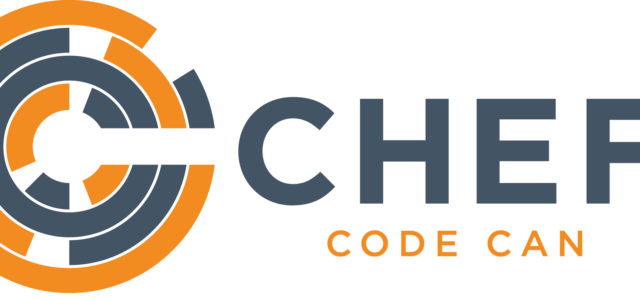We really are in the midst of a data revolution. With a huge amount of data being generated every day, organizations in the current world are encircled left, right, and center by data and the analytic tools that are required for handling it.
Leveraging this data has given companies unprecedented insights into different customer preferences and how they can cater to these needs. So, with all the emphasis on data and the capabilities it holds in the current world, should there be a question regarding data ethics?
Recently, I got a chance to attend Sapphire by SAP. At the occasion, I was asked to moderate the International Society of Chief Data Officers event along with Franz Faerber, Executive Vice President at SAP, and Michael Servaes, Executive Director, International Society of Chief Data Officers. The event was graced by some very knowledgeable attendees, who shed light on the importance of data ethics, and what the way forward is.
Speaking at the event, I talked about the different uses of data in place within the world today, and how that shapes our present and our future. Most of the companies today are not competing with their competitors anymore, but they are now up against the bar that has been set by their customers, the expectations that these customers now have of them. This bar has been set by the excellent service provided by companies such as Google and Facebook.
Every touch point is important, and organizations need to realize this. Data analytics is the way forward. With all these advancements, there is a question that arises here; is the use of data going forward ethical? The role of the Chief Data Officer (CDO) here is to deliver a great customer experience by managing what they do with their data.
How to define what’s Ethical?
When it comes to data ethics, the first question that arises is about what’s ethical and what’s not. There seems to be confusion in this regard, and most organizations cannot reach a consensus on defining this. The panel that I witnessed in the CDO event had well defined answers to this question.
The first and foremost step to defining the ethical virtue of any data set is to run the “sunshine rule.” This rule basically means how you would feel about your organization if the way you used your data was out in the open. By sunshine we mean if the data was out under the sun for everyone to see. If, when thinking about the answer to the question above, you feel that you wouldn’t mind if your use of data was to go out, then you wouldn’t have any reservations in terms of data ethics.
But, if you feel that you wouldn’t be comfortable with your data being out in the open, then you might not be using your data in the most ethical manner. This is a litmus test that has been designed for getting answers based on the truth. Give the answer based on what you truly feel, and you’ll be able to tell whether your use of data is justified or not.
Similarly, there are other tests as well that tend to cater to finding the ethical aspect of using data. These are all litmus tests. You can also imagine a scenario where your use of data is out in the newspaper, would you feel comfortable or threatened? Moreover, the panel members got on the lighter side of things and even mentioned imagining what you would feel if your significant other found out. Will you be able to stand as the same person, or would the guilt of the unethical use of data kill you? Having answers to all these questions can help you define your use of data as ethical or unethical.
The role of the Chief Data Officer
Chief Data Officers or CDOs are the leaders of the data functions in their organization. Not only this, but they play an important role in helping abide with the laws that regulation authorities have in this regard. The General Data Protection Regulation (GDPR) is one regulation that CDOs in Europe, but also in the rest of the world if you do business with European citizens, need to be well versed in.
All panel members in the discussion agreed that the Chief Data Officer should keep their team in the loop at all times. It is always good to have the opinion of your team, rather than to go along with just your own opinion. If even one person in the team feels that the data is not being used in ethical ways, the CDO should be able to take the required steps to address this issue.
Until very recently, CDOs were considered the new kids on the block, and many other C-level executives didn’t rank them at the same level as themselves. However, these rising stars of the digital business have now taken the center stage on the seat towards deciding ethical standards in any organization. One of the most important parts of CDO’s is to make fine judgment calls that don’t trespass the line between trust and innovation. It is important to realize the trust organizations give CDOs and then work on it to ensure that their trust is respected.
CDOs sit at an important position, and it is their job to understand the ethical requirements of using data and eventually fulfilling those requirements. In the midst of advanced data analysis tools, it is important for CDOs to also realize the importance of giving customers the very best in terms of ethical standards, and customers deserve this trust.
Impact from Algorithms
While the world of data can be considered as impressive and transformative, there have been instances where algorithms have gone wrong. These instances have happened because of a wide variety of reasons including human biases, usage errors, technical flaws, and security vulnerabilities. For instance:
- Many social media algorithms have gotten the wrath of viewers over how they influence public opinion. Just recently, we saw Google wrongfully accusing the views of the shooter behind the Los Angeles shooting. They later took the blame upon themselves, but these algorithms can dictate public opinion.
- Moreover, back in 2016 during the Brexit referendum, we also saw how algorithms were blamed for being the reason behind the flash-crash that saw the pound fall by over six percent in value.
- Moreover, investigations in the United States have also found out that algorithms in place within criminal justice systems have been biased against a certain racial group.
Best Practices
To effectively manage the ethical implications of data, CDOs should take the reins and adopt new and better approaches for building stronger foundations. There should be better algorithm management, and CDOs using data analysis tools should ensure that they take care of the ethical needs of the data they have with them. Only then would they be able to really use that data for something feasible.
We used multiple voting at the event, and came to the conclusion that data ethics should be declared as a guideline on the corporate level. More than 90 percent of the CDOs in the audience thought that way, and with growing regulations in this regard, more ethical checks on data are more of a necessity than a want.
Article by channel:
Everything you need to know about Digital Transformation
The best articles, news and events direct to your inbox







